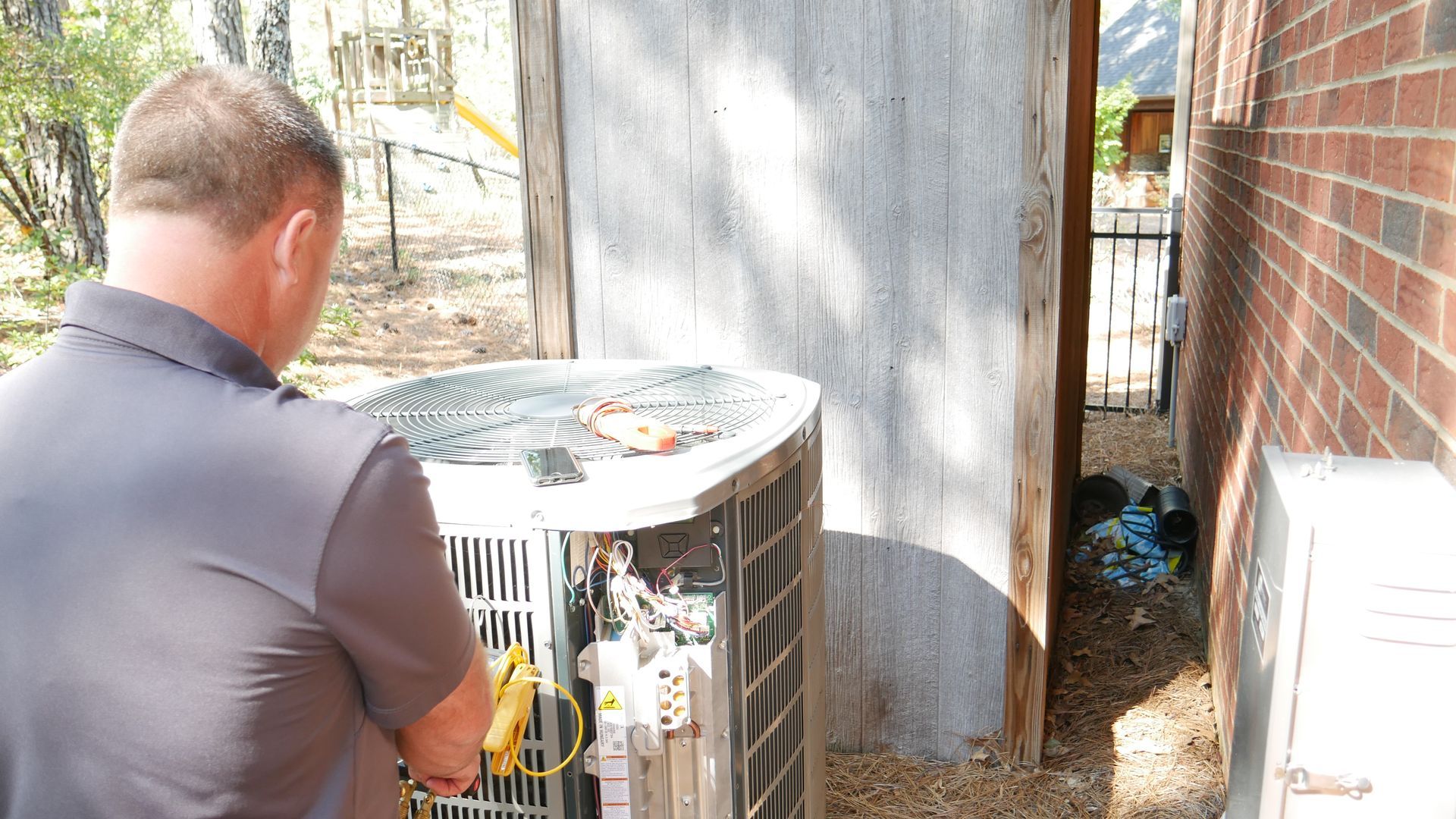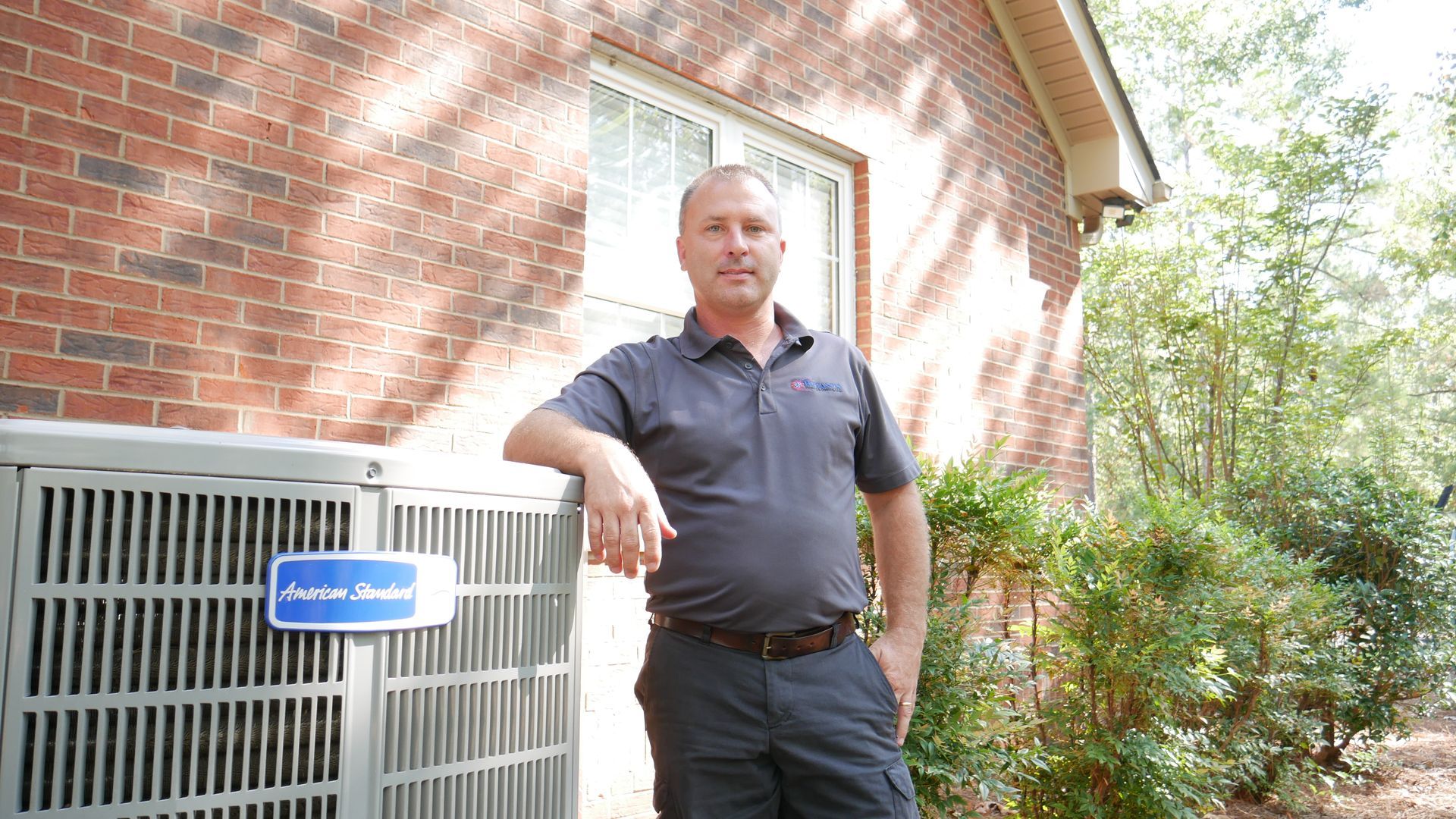Heating Tips for Winter
info • January 10, 2020
Be Smart With Your Thermostat
We know that it can become tempting to want to crank your thermostat all the way up, but we are warning you now – don’t. Yes, you should crank it up to a comfortable room temperature like 72 degrees but be careful when you go past this. It does not make your home heat up any quicker to crank up the temperature. Your home will still become warm in the same amount of time when set to 72 compared to 76. This can do more harm than good as this can force your heating unit to go into overdrive and possibly burn out.
Change Your Filters
Both your furnace filter and air filters should be changed out when dirty. Your furnace will operate much more efficiently with a clean filter. The more efficient your furnace, the higher comfort level your home can achieve. The same goes for your air filters. If you don’t remember the last time you changed out your air filters, it is time to do so now. Your HVAC system as a whole works more efficiently with clean filters. Dirty filters can block the airflow of your system so do you and your home a favor and change them out ASAP.
Use Natural Sunlight
Take advantage of the natural sunlight. During the day when the sun is out, make sure you are opening your blinds and curtains to let the sun inside your home. It will act as a natural heater for your home and you will notice and feel the difference. Be sure you close your blinds and curtains and the end of the day. Closing your curtains can act as a second form of insulation for your windows, making sure the cold air doesn’t enter your home.
Dress Warm
Finally, dress warm. If you are used to hanging out on your couch in a tank top and shorts, try adding sweatpants and a sweatshirt. We are not recommending that you wear a big parka inside all day long, but you should dress accordingly. A light sweater or hoodie will add to your warmth and comfort without having to crank up the heat. You will be staying warm and saving money at the same time!

As we settle into late January in Lexington, South Carolina, residents are seeing classic winter weather — chilly days with highs often in the 40s and 50s, cold nights in the 20s, and even the potential for accumulating snow and hazardous conditions this weekend. A Winter Storm Warning has been issued for the area with forecasts showing several inches of snow and strong winds that could make travel difficult and impact home comfort systems. This kind of weather — especially when snow and ice are on the way — puts unique demands on your home’s heating and HVAC systems. With Brian’s Heating & Cooling in Lexington, SC, it’s a great time to think beyond “just turning on the heat” and focus on comfort, safety, and efficiency. Winter Weather + HVAC: Why It Matters Now Unlike the more routine cool spells earlier in winter, this cold stretch — with freezing temps and snow chances — highlights a few key HVAC considerations: 1. Keep Warmth In, Costs Down Cold air easily slips into poorly sealed homes. Before a cold snap hits, check for drafts around doors, windows, and attic entries. Sealing leaks can keep your heating system from working overtime and lower energy bills. 2. Protect Your System Under Load When temperatures drop and snow accumulates, your furnace or heat pump works harder than usual. A well-maintained system not only heats more consistently but also reduces the risk of breakdowns when you need it most. 3. Clear Outdoor Units Carefully If you use a heat pump, snow and ice can build up around the outdoor unit. Gently clear snow away (don’t use sharp tools!) so airflow isn’t obstructed — essential for efficient operation in cold weather. 4. Watch for Ice on Pipes Frigid nights below freezing can threaten pipes, especially in unfinished spaces like garages and crawlspaces. Keep garage doors closed and consider insulating exposed pipes to prevent costly bursts. HVAC Comfort Tips for Winter Storm Conditions Here are a few practical ways to maintain comfort during cold spells like this: Change filters regularly: A clean filter ensures good airflow, reducing strain on your heating system. Use your thermostat smartly: Setting it a few degrees lower at night can save energy, but avoid drastic swings which make your system work harder. Schedule a winter checkup: A professional inspection can catch issues before they turn into emergency repairs during a storm. At Brian’s Heating & Cooling, we’re fully equipped to help Lexington homeowners navigate winter weather — from preventive maintenance to emergency repairs and heating system upgrades. Whether you’re dealing with pressure on your system from colder-than-normal days or prepping for another round of wintry weather, our team is here with reliable service and expert support. If you’ve noticed uneven heating, rising energy costs, or strange sounds from your HVAC system, now’s the time to call (803-796-1788) . Let us make sure your home stays warm, safe, and comfortable throughout the season

The holidays are here in Lexington — and that means cozy gatherings, delicious meals, and (often) a full house! While your HVAC system has likely already transitioned to heating mode, this time of year comes with its own challenges: fluctuating indoor temperatures, extra foot traffic, and the heavy use of kitchens and ovens that can throw off your home’s comfort balance. At Brian’s Heating & Cooling , we want you to enjoy a comfortable home without draining energy or stressing your system. Here’s how to make the most of your heating system this holiday season — whether you’re hosting a big family dinner or just trying to stay cozy all winter long. 1. Balance Comfort With Efficiency When guests arrive, everyone has their own comfort preference — which can lead to thermostat wars! Instead of constantly adjusting the thermostat, try this: Set your thermostat at a comfortable base temperature (around 68–70°F is usually ideal for winter in South Carolina). Use zoned heating and programmable thermostats to keep main gathering areas comfortable while reducing output in unused rooms. If you have a smart thermostat , program temporary schedules for anticipated guest times. This helps reduce energy waste while keeping your home cozy when it matters most. 2. Understand How Kitchen Use Affects Heating Holiday meals mean ovens running for hours — and that extra heat can actually confuse your thermostat. When the oven is on: Warm air from the kitchen can signal your thermostat that the whole house is warm, causing the heat to kick off prematurely. To prevent this, make sure the thermostat isn’t placed directly near the kitchen or stove area. If you notice the heat cycling off and on more than usual, consider placing a small fan or moving the thermostat’s signal path slightly to avoid false readings. 3. Close Off Unused Spaces With guests spread across rooms, it’s easy to overlook bedrooms or spaces no one uses during a gathering. Closing vents and doors in those areas can: Improve airflow where it’s needed most Reduce heating zones that no one is using Lower your overall energy usage Just be sure not to close more than 20–30% of your vents — too many closed vents can create pressure imbalances and restrict airflow. 4. Keep Airflow Clear Holiday décor and extra seating can sometimes block vents or registers. Before company arrives: Make sure all vents are visible and unobstructed Keep furniture and holiday decorations at least a few inches away from vents Let warm air circulate freely to avoid cold spots This helps your HVAC system heat evenly and efficiently throughout your home. 5. When to Call Brian’s Heating & Cooling If your heating system struggles to keep up during gatherings — or if you notice odd noises, uneven temperatures, or higher-than-usual energy costs — it may be time for professional help. Our technicians can: Check airflow & duct performance Ensure your system is properly sized for your home Tune and optimize your heating ahead of the coldest months That way, you can focus on turkey, family, and holiday cheer — not thermostat stress! Make Your Home Holiday-Ready The holidays are about comfort, warmth, and time with loved ones. With strategic thermostat use, clear airflow, and a well-maintained heating system, your home can stay comfortable and efficient all season long. If you’d like professional advice or a winter system checkup, call Brian’s Heating & Cooling at 803-796-1788 . We’re here to keep your Lexington home warm, welcoming, and ready for any celebration! To learn more about how we can keep your Lexington, SC home warm and comfortable all winter long, check out our heating services today.

With November upon us, the weather in Lexington is shifting — daytime highs are cooling off, nighttime temps are dropping, and the heat will soon be running much more often. At Brian’s Heating & Cooling, we want to help you stay cozy and protected from unexpected HVAC issues as winter approaches. Here are our top recommendations to prepare your home for the season ahead: 1. Replace or Clean Your Air Filters As your heating system kicks into gear, a clean filter is more important than ever. A dirty or clogged filter restricts airflow, reduces comfort, and forces your HVAC system to work harder than it should. Change your air filter now to improve both efficiency and indoor air quality. 2. Clear Debris Around Outdoor Units Even though cooling season is behind us, your outdoor equipment still needs attention. Clear away leaves, pine straw, and other yard debris so the system can breathe properly and avoid airflow blockages. 3. Test Your Heating System & Thermostat Don’t wait for the first freezing night to find out there’s a problem. Switch your system to heat mode and run a quick test cycle. Make sure each room warms evenly and check that your thermostat responds correctly. If you have a programmable or smart thermostat, update the settings for your winter schedule to help conserve energy. 4. Inspect Vents, Ducts & Return Air Paths Warm air needs a clear path to keep your whole home comfortable. Ensure furniture and rugs aren’t blocking vents, and consider having your ducts inspected if you’ve noticed uneven heating or excess dust in the air. 5. Schedule a Professional HVAC Tune-Up Even with great DIY maintenance habits, your system benefits from a professional inspection. A trained technician will perform a full safety and efficiency check, clean internal components, and identify early warning signs before they turn into costly repairs. A simple tune-up now can prevent unexpected breakdowns during the coldest days of winter. Why This Matters for Lexington Homes While our winters in South Carolina may not be as harsh as those further north, we still rely heavily on our heating systems — especially overnight or during sudden cold snaps. A little preparation now ensures: ✔ Better comfort ✔ Lower energy bills ✔ Longer HVAC system lifespan ✔ Fewer winter surprises If you’d like help getting your home winter-ready, the trusted team at Brian’s Heating & Cooling is just a call away. We’re here to keep your family warm, safe, and comfortable all season long. Check out our maintenance service page to learn more about how we can keep your Lexington, SC home warm and comfortable all fall and winter long.
